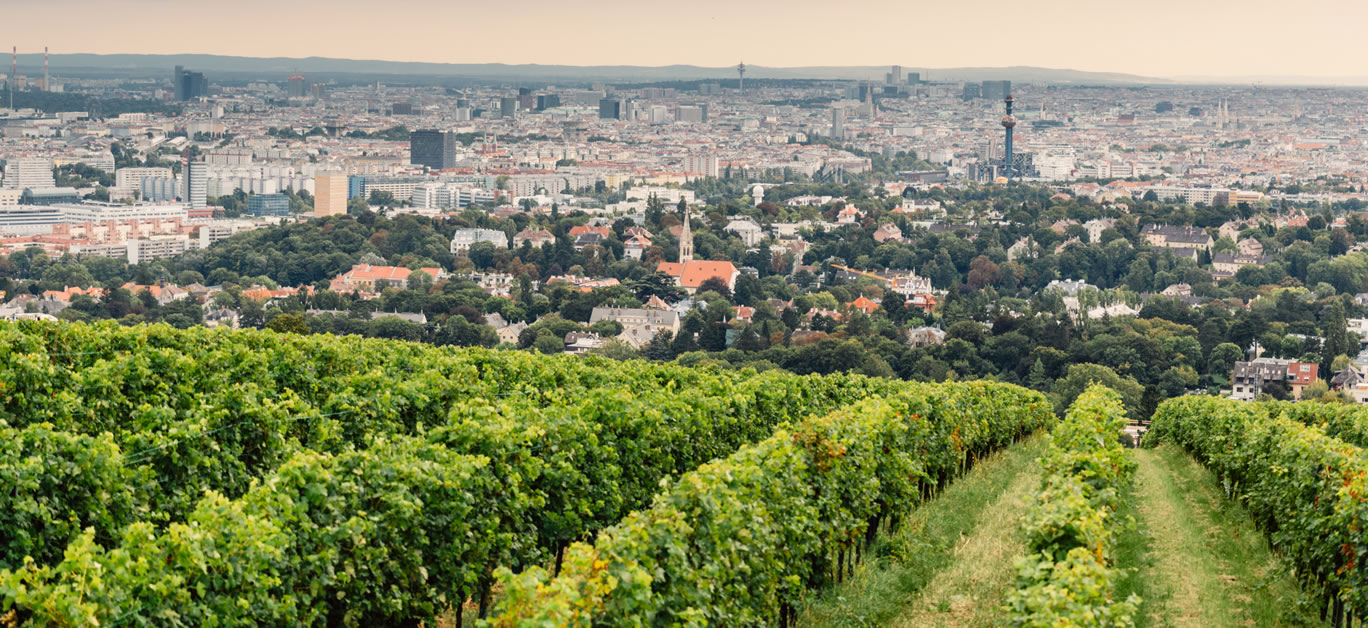Words by Marianna Hunt
For many of us, even the words ‘Austrian wine’ are enough to make us wince. Memories still run fresh of the 1980s scandal, when it was discovered that some of the country’s winemakers were pumping diethylene glycol (a toxic substance used in antifreeze) into their bottles to make them seem sweeter and richer to unwitting buyers.
“But sometimes a scandal can be the best possible thing for a country,” says Alexa Brauner, a Vienna tour guide with a particular interest in wine. “It forced us to reassess and rediscover our traditional winemaking culture based on quality and natural methods.”
Since then, Austria’s wines have come on enormously – rivalling many of the great winemaking terroirs of France, Italy and Spain. Yet they have remained relatively undiscovered, with low levels of exports and international wine tourism within the country remains in nascent stages.
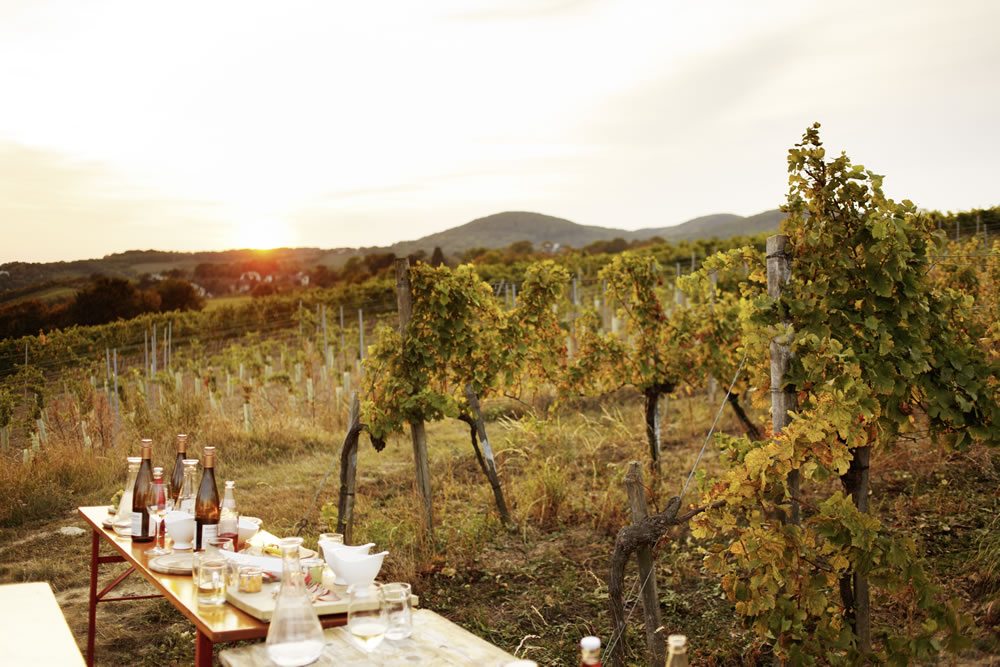
Meet the winemakers
Fritz Wieninger is one of the winemakers leading the revival. His winery is based in Vienna – which few outside of Austria know is the city producing the most wine in the world. Fritz’s wines are made using biodynamic methods, which let the natural flavours of the grapes and the terroir shine through. Unusually for an Austrian winemaker, he has built up an international reputation and around 40 per cent of what he makes is exported.
“It is important for me to work out and express Viennese typicality in the wines,” Wieninger says. “Especially close to my heart is the Wiener Gemischter Satz – a Viennese classic that had been nearly forgotten. With this speciality, you can experience all of Vienna in one wine.”
Wieninger has been pivotal in the revival of Gemischter Satz – a traditional field blend wine from the region. It fell out of favour some years ago but is now booming in popularity. For this wine, between three and 20 different grape varieties are planted in the same vineyard, and harvested and pressed together. The varying levels of ripeness and acidity create a complex yet harmonious concoction.
To taste Wieninger wines, head to one of the family’s bars/restaurants in Vienna. In the city’s chic 19th district – home to most of its vineyards – you can hike up the hill to their pop-up bar amid the vines, which appears when the good weather does, and serves cold cuts of meat and cheese. The Wieningers also have a heuriger (wine tavern) in the 21st district, which serves hearty Austrian meals and cakes toppling over with cream.
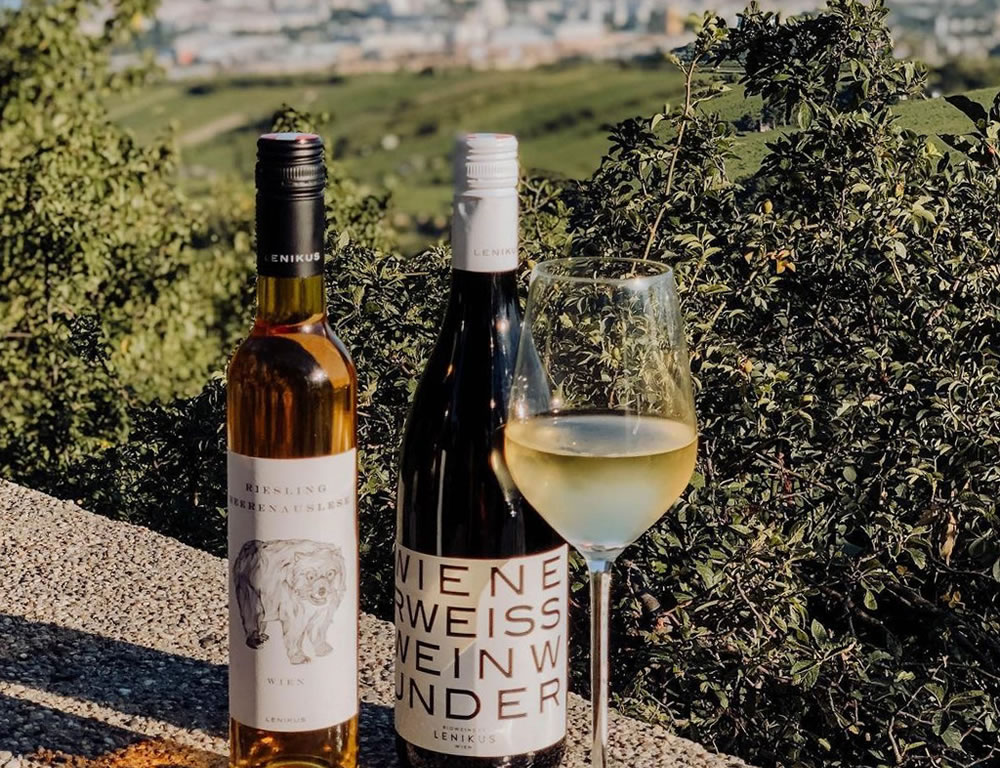
Taking the international stage
The burgeoning interest in Austrian wines – both locally and abroad – has meant that many four and five-star hotels across the country are stocking up their cellars with home-grown wines.
The four-star Hotel Topazz Lamee in Vienna has a vineyard attached to it, the natural winery Lenikus. It makes mostly whites but also reds, rosés, sparkling and sweet wines. All the grapes are picked by hand for these organic, vegan wines.
“Austrian wine culture is characterised by independent wines with finesse and character. The old Austrian grape varieties in particular have great potential to grow in popularity, such as the flagship Grüner Veltliner, Wiener Gemischter Satz DAC, Neuburger, Zweigelt and Blaufränkisch,” says Christian Schmalvogl, who manages the Lenikus winery.
In western Austria, one of the best wine cellars going can be found at Severin*s – a boutique hotel in the glamorous ski resort of Lech. Of the circa 1,500 bottles, around half are from Austria.
“We definitely get international guests wanting to try Austrian wines during their stay – and I’m not sure if I’ve ever had a customer who wasn’t happy with my recommendation of Austrian wine,” says Sandra Bein, who manages Severin*s’ wine collection.
Some of her favourites on their wine list are a Rotgipfler by Johanneshof Reinisch – an aromatic yet delicate Austrian white wine with a beautiful creamy texture on the palate. On the red side it is a Sankt Laurent – another local Austrian variety that is similar to a Pinot Noir with hints of spice and smokiness.
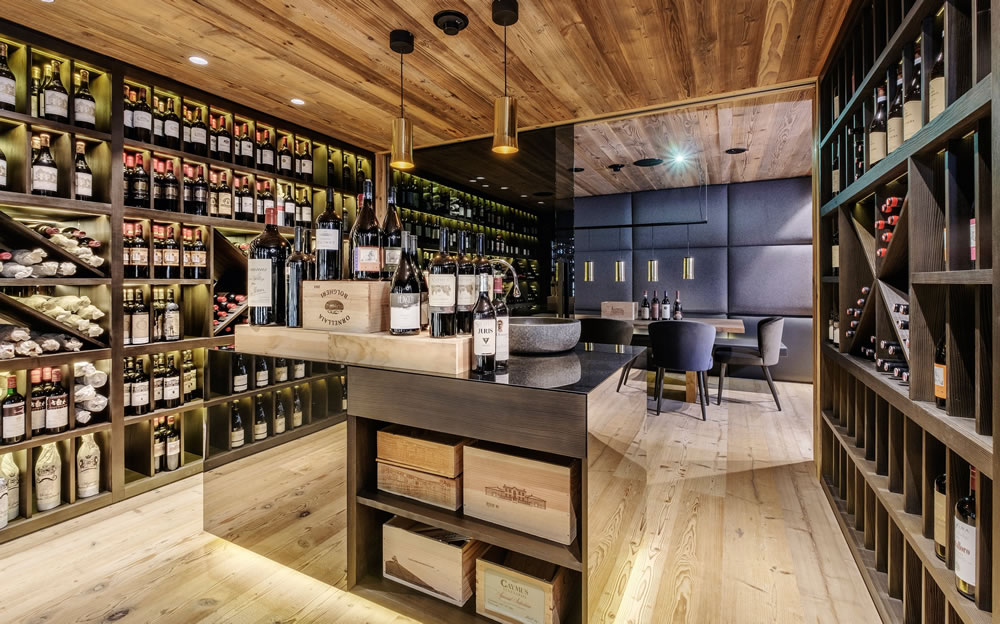
Heuriger culture
Rather than defying tradition, Austria’s high-end wine makers are actually moving back towards it. The country has a long tradition of small-scale production of high quality wines – most often by single families. This is embodied in the culture of the heuriger. These wine taverns have been around in Austria for hundreds of years and still, today, hold a pivotal place in local life and drinking culture.
Strictly speaking, a heuriger should be run by a single person/family and serve only wines they themselves have made. Most will have a sprig of pine hanging outside the door (indicating they are open for business) and rustic wooden interiors. In Vienna you can hop aboard the Heurigen Express – a blue-and-yellow train that trundles through the vineyards, depositing you at some of the best wine taverns in the city.
Although the heuriger was designated a piece of Vienna’s intangible cultural heritage by UNESCO in 2019 – taverns can be found all over the country. In Baden bei Wien, for example, a spa town less than an hour from Vienna, there are several excellent heurigen run by local families. The Streiterhof tavern, in particular, run by the Märzweiler family is a must-visit. Don’t miss the home roasted pork and oozy apple strudel.
Baden bei Wien also acts as the gateway to one of the world’s best wine festivals: the Genussmeile. Over two weekends in September, the Vienna Woods transform into the longest bar in the world. Almost 100 winemakers turn out – providing their guests with homemade food and drink – in a route that runs for around 10km.
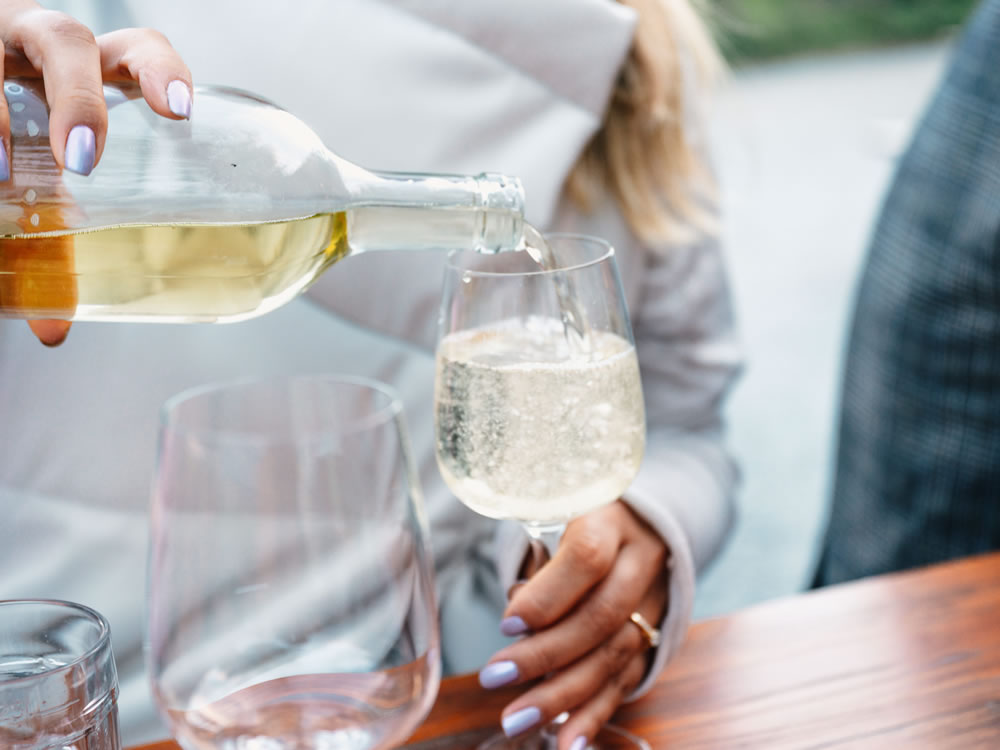
Closer to home
The blossoming demand for Austrian wines abroad means your new love affair with them does not have to end with your holiday. A growing number of luxury restaurants and wine shops in the UK are starting to stock quality wines from across Austria.
Vinoteca – a new addition to the Borough area in London – serves the Gruner Veltliner (one of Austria’s most celebrated wines) from Schloss Gobelsburg, Kamptal and a Zweigelt 2018 from Johanneshof Reinisch, based in the region near Baden bei Wien. Provisions Wine and Cheese – a shop based on Holloway Road in north London – also has a few good bottles.












